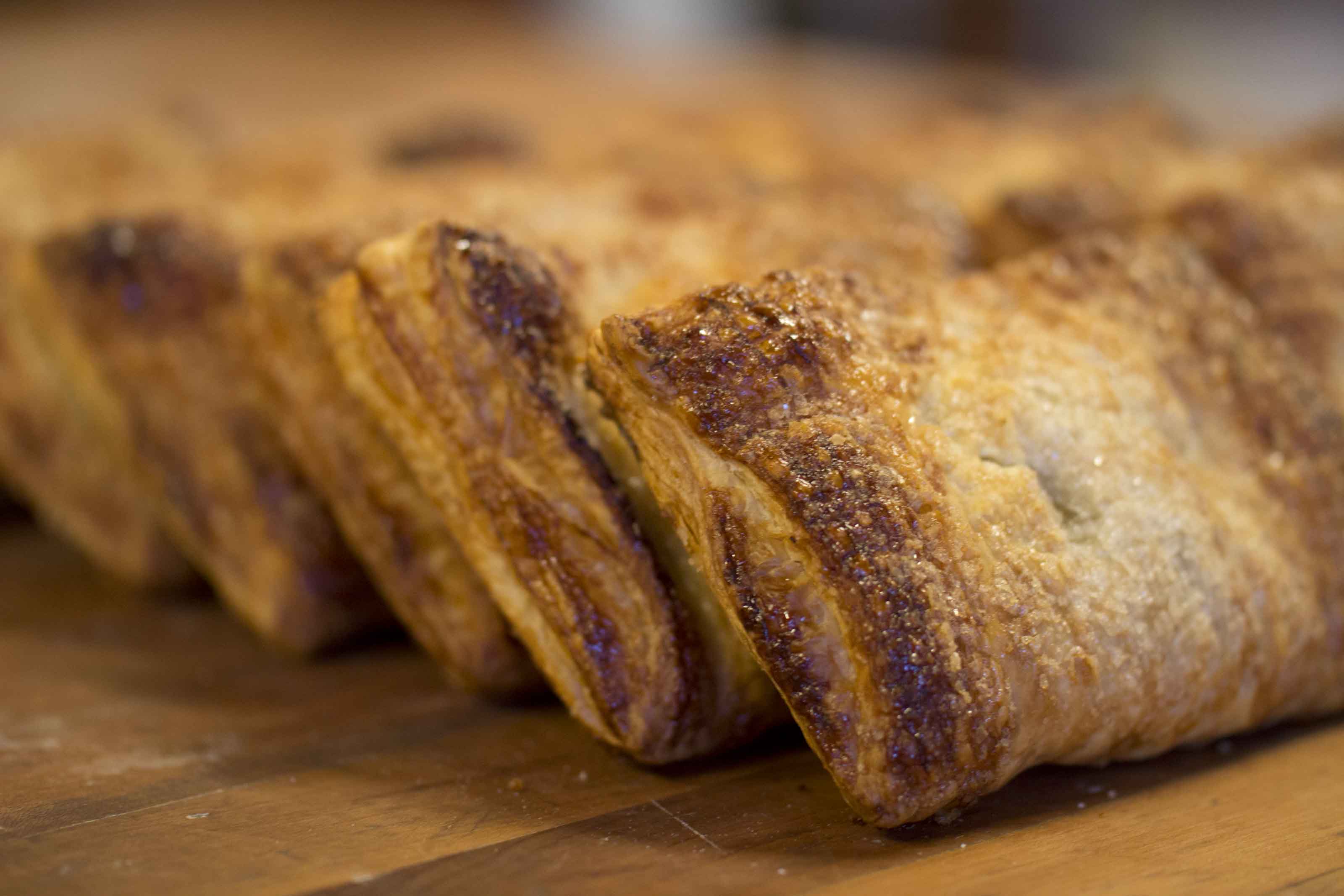

While the Sephardic Jews were fairly welcome and comfortable among the Ottomans, they still kept somewhat apart without fully integrating. (Yufka is hand rolled and slightly thicker than filo, which is stretched.) Yufka replaced the previous dough of the burqa. One of the newest Turkish culinary inventions at the time was a paper-thin dough called yufka, very similar to what we know today as filo/phyllo pastry. Called borek, it was a modification of a filled hand-pie (called burqa) that the Turkic people knew from their origins in central Asia. But right around the same time that they arrived in the Ottoman Empire, there was another food that was becoming all the rage there. The Spanish Jews kept cooking empanadas in Turkey. They often have meat and vegetable fillings inside. Can you think of a Spanish food that kind of resembles a boureka? (In particular, look at the top right boureka in the main picture for this post - the most “genuine” boureka of the lot.) A handheld pastry turnover with stuffing inside?Įmpanadas! The empanada comes from Spain and subsequently spread to Latin America (where it is very popular) and other areas with Spanish heritage. When the Catholics kicked the Jews out, the Muslim Turks welcomed them in. That’s what bourekas are!Īlthough there were Jews living in Turkey since ancient times, the majority of the Turkish Jewish population descend from the Sephardic Jews of Spain who moved to the Ottoman Empire after they were expelled from Spain in 1492.

But sometimes, a special magic happens where you discover something in the new country and mix it with one your foods from the old country to create a new food. And of those you can’t, many are tiny island nations of the Pacific, or remote countries of central Africa with a Jewish presence in other nearby nations.) When you move from one country to another, you miss the food you used to eat, and you continue as best as you can to keep making it. (I actually checked, and you can easily dig up at least some mention of a Jewish presence in nearly 90% of the countries of the world.

So What Makes Bourekas Jewish?Īs Gil Marks writes in his Encyclopedia entry on bourekas, like most Jewish Foods, they are “a synthesis of cultures and styles over the course of history, they have been transformed and transferred, on their way to becoming a ubiquitous treat in modern Israel.” (1) Encyclopedia of Jewish Food, Gil MarksĪ Jew of 18th Century Ottoman Empire (WikiMedia)Basically, Jews have spread all over the world. Meat-filled bourekas are not uncommon on Friday nights, but typically are homemade and not purchased in commercial bakeries. Some of the classic fillings that appear to have dropped from popularity (at least as a mainstream baked good in Israel, though probably remaining in the homes of Sephardic Jews around the world) include pumpkin or winter squash (particularly for Rosh Hashana and Sukkot) and eggplant. Look forward to a separate post or two on that topic, while I stick with bourekas alone in this one.) (I considered including them all, along with the ways to differentiate between them, in this post, but realized it would be way too long. They are crispy, sometimes are topped with seeds of some kind, can be eaten warm or at room temperature, and are one of the more delicious and tempting street foods in Israel.īourekas also make up one part of the classic trio of Sephardic Jewish pastries, affectionately referred to as “The Three B’s” - bourekas, boyos and bulemas. In broad strokes, Bourekas are pastry turnovers, typically around 3 inches in diameter, filled with a variety of usually savory stuffings, such as potato, cheese, spinach or mushrooms. What Are Bourekasīefore I get into the history, I need to describe bourekas, for those who may be unfamiliar. I don’t believe that is enough of a reason to classify something as a Jewish Food, as I wrote there.īourekas, however, are a Jewish Food because in addition to being invented by Jews, they also reflect Jewish History. Bourekas (or burekas or borekas or however you choose to spell them) are actually a true Jewish Food, as I mentioned in this post, and not only because we invented them. But many people don’t know their country of origin - Turkey - and even fewer know that they were actually invented by Turkish Jews. Bourekas are one of those foods that are uber-popular here in Israel, and becoming better-known around the world.


 0 kommentar(er)
0 kommentar(er)
